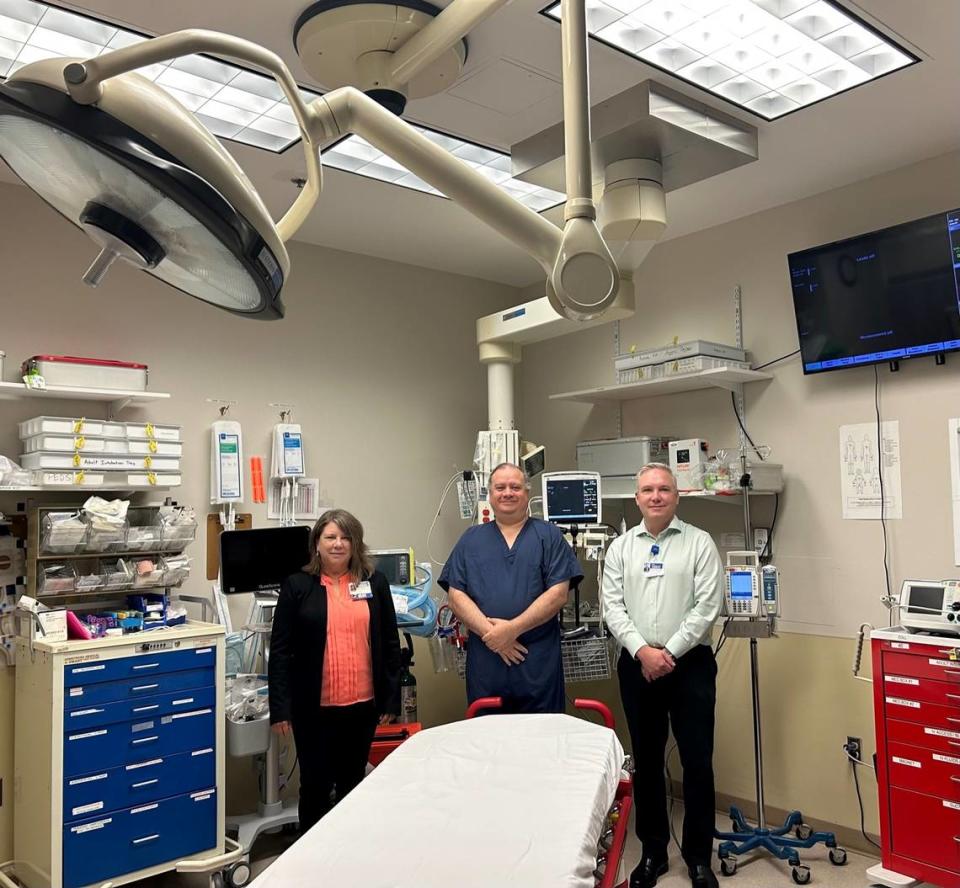Hospitals across the U.S. ranked on patient experience. How Tri-Cities hospitals compare
What makes a good hospital? Is it the services and resources available? The doctors and nurses? The cost and transparency?
Hospitals are evaluated frequently with different parameters. The Leapfrog Group is a patient-focused organization that gives grades to general hospitals in the country twice a year. Its rankings are unique because they focus on patient experience. Some of the criteria include prevention of medical errors, accidents and infections.
Ranking reflects total scores based on the data in each category. However, some hospitals may not have data for certain categories, due to differing services or refusal to submit data.
In this most recent ranking, less than 1% of hospitals in the country earned an F grade, according to a press release from the Leapfrog Group.
National hospital patient experience grades
The states with the top 10 grades were:
Utah
Virginia
North Carolina
Pennsylvania
South Carolina
Connecticut
Montana
Tennessee
Florida
Texas
The states with the lowest scores had no A grades anywhere in the state (or district):
Vermont
Wyoming
Delaware
Washington D.C.
North Dakota
The press release says that health care-acquired infections (HAIs) are reducing following the pandemic, after they significantly increased during COVID-19.
“Now that we have pre- and post-pandemic data for patient safety measures, we are encouraged by the improvement in infections and applaud hospitals for reversing the disturbing infection spike we saw during the pandemic,” stated Leapfrog Group CEO Leah Binder in the press release. “However, there’s still more work to be done. It’s deeply concerning that patient reports about their health care experience continues to decline.”

Washington hospital patient grades
In Washington state, 46 hospitals were graded. The top ten grades were given to:
EvergreenHealth in Kirkland
Island Health/FKA Island Hospital in Anacortes
MultiCare Deaconess Hospital in Spokane
Overlake Hospital Medical Center in Bellevue
PeaceHealth Southwest Medical Center in Vancouver
PeaceHealth St. Joseph Medical Center in Bellingham
St. Anthony Hospital in Gig Harbor
St. Francis Hospital in Federal Way
St. Joseph Medical Center of Tacoma
St. Michael Medical Center in Silverdale
Each of these hospitals received an A ranking. Only one of the 46 Washington hospitals received a D.

In Tri-Cities, Trios Southridge Hospital received a B at rank 20. Kadlec Regional Medical Center received a C at rank 25.
So, in which categories are Trios and Kadlec better or worse than the average? Based on the Leapfrog Group data:
▪ Trios did better than average in:
UTIs
Dangerous object left in patient’s body
Serious breathing problem
Harmful events
Dangerous bed sores
Dangerous blood clot
Air or gas bubble in blood
Safe medication administration
Handwashing
Staff works together to prevent errors
Effective leadership to prevent errors
Nursing and bedside care for patients
Specially trained doctors care for ICU patients
▪ Trios did worse than average in:
C. diff infections
Accidental cuts and tears
Patient falls and injuries
Doctors order medications through computer
Communication about medicines
Communication w doctors
Communication with nurses
Responsiveness of hospital staff
Data could not be provided for MRSA or Death from serious treatable complications. The hospital performed near average in every other category evaluated.
▪ Kadlec did better than average in:
Sepsis infections after surgery
Kidney injury after surgery
Serious breathing problem
Accidental cuts and tears
Harmful events
Falls causing broken hips
Dangerous blood clots
Air or gas bubble in blood
Communication about medicines
Communication about discharge
Communication with doctors
Communication with nurses
Responsiveness of medical staff
Kadlec did worse than average in:
C. diff infections
Surgical site infection after colon surgery
Dangerous object left in patient’s body
Surgical wound splits open
Blood leakage
Collapsed lung
Handwashing
Specially trained doctors care for ICU patients
Kadlec declined to provide data for staff working together to prevent medical errors, effective leadership to prevent errors, and nursing and bedside care, according to Leapfrog Group data. It performed near average in all other categories.

